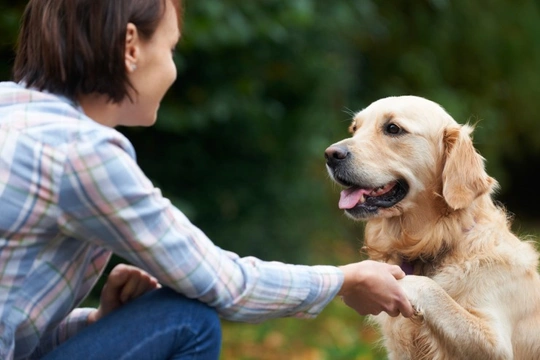
How your dog picks up on your hidden cues and mood
Anyone who has had a dog for any length of time will know all too well how intuitive dogs can be, with their sometimes psychic-seeming intuition into our moods, responses and feelings, and this is something that a lot of us simply take for granted. But you may have wondered on occasion exactly how dogs pick up on our hidden cues and moods so instinctively, often without us needing to say a thing.
If your dog can spot that you’re sad, frustrated or have just had a row with someone even when you are doing your best to mask it, this article will explain some of the various ways in which dogs pick up on the wide range of non-verbal cues and moods that humans express without even knowing it, in order to offer some insight into your dog’s mind and methods of communication. Read on to learn more.
Tone of voice
The tone of voice that you use with your dog is very important, and while dogs cannot speak “person”, they can certainly get the gist! The tone of voice that you use with your dog or around your dog tells them a lot, such as if you are frustrated, angry, happy or pleased with them.
Learning to do this has been a vital element of how dogs have evolved alongside of humans, and being able to interpret the moods and whims of people has help dogs to get their needs fulfilled and avoid danger for many millennia, and is now a finely honed skill.
For instance, if you are trying to train your dog and are getting frustrated but are trying hard not to show this, your dog will likely pick up on this anyway, because of the minute changes that will come into your tone of voice and speech patterns. Dogs aren’t daft-as you will be no doubt aware if you have ever spent a while trying to coax your dog out from behind the sofa when it is time for a bath- and they clearly know when you are up to something!
Facial expression
Dogs read facial expressions with great clarity, and the slightest tensing of your eyes or brow brings about minute changes in your facial expression that your dog will be able to read. They can tell a real smile from a fake smile with no difficulty at all, and much as is the case mentioned above, if you are trying to mask an emotion such as frustration, your dog is highly unlikely to fall for it, because of the minute cues that you are giving off and are unable to mask.
Body language
As well as your facial expression, your whole body tells a story when it comes to your feelings and emotions, and once again, while you might be able to fool other people, your dog will see right through you! Tense muscles, a certain stance and all of the other little signals that your body exhibits to reflect your mood are read by your dog, which is why they often know instinctively if you are sad or have just had a row, and will respond accordingly.
Temperature
Dogs can also pick up minute changes in your temperature, which can indicate things like your health, hormone levels and other secrets, which is why your dog might seem to “know” that you appear to be getting sick a day or so before you do, and stay close to you, or when something else is going on.
Pheromones
Dogs and humans both communicate with pheromones too, although we humans are not physically aware of them. This means that your dog will know if you are excited, happy, or secretly like someone… Even if you aren’t ready to admit it to yourself!
Scent and taste
When it comes to scents, dogs have us beaten hands down with their highly sensitive noses, which is something that humans are only now really beginning to understand in detail.
Some dogs can detect cancer, blood sugar changes and other important indicators of disease and health, while some dogs will even know if their person falls pregnant from the minute changes that this can cause in their body’s signature scent.
Additionally, if you have been sweating or handling something interesting, your dog might try to lick you to find out a little more information on what you’ve been up to!
The full picture
When it comes to reading a picture of the world around them, dogs incorporate all of these cues together to allow them to develop the true image; such as if your voice is calm but your body language is exuding tension.
There is not always anything that you can do to change the signals that you are giving out and that your dog is picking up on, but getting a better idea of how they read you and what they can learn can help to provide an insight into your dog’s mind and responses.



